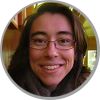Research Team
Paulo Teodoro de Matos

Paulo Teodoro de Matos (Lisbon, 1974) graduated in History at the Universidade Nova de
Lisboa (1997) and concluded his PhD in Historical Demography at the University of Minho
(2004). He was a postdoctoral fellow of the Fundação para a Ciência e Tecnologia (FCT)
and developed research on the demography of Goa, 1720-1830 (2004-2007) and on the
Portuguese Atlantic territories (2007-2009). Between 2009 and 2013 he was Assistant
Researcher at Universidade Nova de Lisboa, performing functions at the CHAM (Center for
Global History). He also teaches as Assistant Professor in the Faculty of Humanities at
the Portuguese Catholic University (since 2009). Since 2014 he is full researcher at CHAM
and works on Historical Demography, Social and Family History and the History of Portuguese
Expansion. He is the director of the project «Counting Colonial Populations. Demography
and the use of statistics in the Portuguese Empire (1776-1875)», funded by the FCT, and
the executive coordinator of the MA in History of the Portuguese Empire (Universidade Nova
de Lisboa, Faculdade de Ciências Sociais e Humanas).
Email: plmatos@fcsh.unl.pt
 |
| |
|
Cristina Nogueira da Silva |
| Nova Direito - UNL |
|
| |
Cristina Nogueira da Silva

Ana Cristina Nogueira da Silva is a Professor at the Faculty of Law (FD- UNL) where she teaches
History and History of Law (first and second cycles) and the discipline of Law and Society
(third cycle). She holds a degree in History (FCSH/NOVA), a Master in Social Science (History
and Sociology of power, Institute of Social Sciences, ICS-UL) and a PhD in History of Law
(FD-UNL). She is a researcher in CEDIS (Centre for Research in Law and Society, UNL) and joined
several research teams in different projects on history of law, institutional and political
history of early modern and modern period and on colonial studies, citizenship and civil rights.
Among other studies she has published O Modelo Espacial do Estado Moderno, Reorganização
Territorial em Portugal nos Finais do Antigo Regime (Lisboa, Editorial Estampa, 1998). Currently
her main research interests are the intellectual history of liberalism, citizenship and legal
status of the territories and populations of Portuguese overseas empire (19th and 20th centuries),
themes on which she also published the book Constitucionalismo e Império. A cidadania no
Ultramar português (Lisboa, Almedina, 2009) and several articles in national and international
journals. In the framework of the project Counting Colonial Populations she focuses on the
History of the categories, citizenship and legal status of the territories and populations of
the empire (1776-1834).
 |
| |
|
Filipa Ribeiro da Silva |
| University of Macau |
|
| |
Filipa Ribeiro da Silva

Filipa Ribeiro da Silva (1974) is Assistant Professor of History at the University of Macau
(China). She is also member of the Global Collaboratory on the History of Labour Relations at
the International Institute of Social History of the Netherlands Royal Academy of Arts and
Sciences and an Honorary Fellow of the Wilberforce Institute for the study of Slavery and
Emancipation in the University of Hull (UK). Filipa obtained her PhD at Leiden University in
2009, after teaching History and History of Portuguese Oceanic Expansion at the New University
of Lisbon, where she received her BA honors and Master Degree in 1996 and 2002. Dutch and
Portuguese in Western Africa: Empires, Merchants and the Atlantic System, 1580-1674 is her
latest book. In the framework of the Counting Colonial Populations project she studies the
demography of Mozambique (1834-1875).
 |
| |
| Maria Bastião |
| University of Leiden |
|
| |
 |
| |
| Maria Luís Rocha Pinto |
| University de Aveiro |
|
| |
 |
| |
|
Paulo Silveira e Sousa |
| CHAM/FCSH-UNL; UA |
|
| |
Paulo Silveira e Sousa

Paulo Silveira e Sousa (Funchal, 1970) is a researcher at the Center for Global History
(CHAM, FCSH/Nova-UAc). He graduated in Sociology at ISCTE- (1994), and concluded his Master
Degree in Social Science at the Institute of Social Sciences, University of Lisbon (1998). He is
finishing his PhD in History and Civilization at the European University Institute in Florence.
He published articles and chapters on the following topics: Institutional History (State and
Parliaments), History of Public Health, History of statistical processes, Prosopography, Elites
and Social History and Portuguese Atlantic History (19th and 20th centuries). He published the
article «Ruling the Empire: The Portuguese Colonial Office (1820-1926)» (2006, with Pedro Tavares
de Almeida) and co-edited Do Reino à Administração Interna: História de um Ministério,
1736-2012 (2015, with Pedro Tavares de Almeida). He recently published online: «A Produção de
Estatística Agrícola e a Construção do Estado Liberal em Portugal 1834-1926», ICS Estudos e
Relatórios n.º 4, Lisboa, ICS-UL, 2014, 72 pp. In the framework of the Counting Colonial Populations
project he studies the History of statistics and census production, and the demography of Azores and
Madeira (1776-1834).
Email:paulo.sousa@eui.eu
Cooperating Researchers
 |
| |
| Diana Rato |
| FCSH-UNL |
|
| |
 |
| |
| Marcia Mello |
| Universidade Federal do Amazonas |
|
| |
 |
| |
| Yamê Paiva |
| Universidade Federal de Paraíba |
|
| |
 |
| |
| Luciana Conceição de Lima |
| Universidade Federal do Rio Grande do Norte |
|
| |
 |
| |
| Tiago Simões da Silva |
| FCSH-UNL |
|
| |
| |
| |
| |
| |
|
| |
Research Fellows
 |
| |
|
Diogo Filipe Paiva |
| CHAM/FCSH-UNL; UA |
|
| |
Diogo Filipe Paiva

Diogo Paiva holds a degree in History, variant of Archaeology (2005). After years of fieldwork,
he participates in a project focused in the Middle Assyrian period, within which he defended his
MA thesis in History (2012) centred in the Middle Assyrian Empire’s territorial expansion,
combining History and Archaeology of the Ancient Near East. Since 2012 he is affiliate to
CHAM-FCSH/NOVA-UAc as Research Assistant. Assyriology, Colonial Demography and Digital Humanities
are his main research focus. Currently he is a research fellow in the “Counting Colonial
Populations. Demography and the use of statistics in the Portuguese Empire, 1776-1875" project,
where he is developing the study of Daman and Diu’s demography (1776-1875).
 |
| |
|
Joana Paulino |
| IHC/FCSH-UNL |
|
| |
Joana Paulino

Joana Paulino holds a graduation in History and a Master Degree in Contemporary History. She is
a PhD student in the same field of specialization at the Faculty of Social and Human Sciences,
New University of Lisbon (FCSH/NOVA). Since 2008 she is a researcher at the Institute of
Contemporary History (FCSH/NOVA). Her work focuses on the history of railways, tourism, urban
and suburban development. In her PhD she is doing research on the increase importance of
children and child abandonment in 19th century Portugal, having Lisbon has her case study.
Currently she collaborates with the project Counting Colonial Populations. Demography and the
use of statistics in the Portuguese Empire, 1776-1875. In the framework of this project she
studies demography and child abandonment in Goa.
 |
| |
|
Patrícia Gomes Lucas |
| IHC/FCSH-UNL |
|
| |
Patrícia Gomes Lucas

Patrícia Gomes Lucas holds a degree in History and a Master’s Degree in Contemporary History
(FCSH/NOVA). Currently she is taking a PhD in Contemporary History (FCSH/NOVA). She has worked
subjects related with XIXth century political history, history of political parties, biography
and prosopography. She is an integrated researcher of the Institute of Contemporary History
(FCSH/NOVA). Currently she is a research fellow in the “Counting Colonial Populations.
Demography and the use of statistics in the Portuguese Empire, 1776-1875" project (CHAM,
FCSH/NOVA-Uac), where she has been studying the demography of Sao Tome and Principe (1776-1822).
 |
| |
|
Joana Neto |
| FD-UP |
|
| |
Joana Neto

Joana Neto is graduated on Criminology by Faculty of Law, Porto University
(Porto, Portugal), and a member of the Security and Policing Issues Analysis
Group (GASP). Her recent works are related with policing models, criminal networks,
insurance fraud and retail fraud. Currently, she's integrated in CHAM/FCSH/NOVA as
research fellow working in the “Colonial Populations: a repository for demographics
and statistics of the Portuguese Empire (1750-1890)” project. Her main duties are
to provide support for statistical analysis of demographic information about Angola
(1707-1835) and to manage the information on colonial populations produced for the
Portuguese overseas empire (1750-1950) at the central database.
 |
| |
|
Marta Fiolić |
| University of Zagreb |
|
| |
Marta Fiolić

Marta Fiolić (1990) holds masters degrees in Modern and Contemporary History and Ethnology
and Cultural Anthropology, obtained at Faculty of Humanities and Social Sciences, University
of Zagreb. At the moment she is doing an internship at the Center for Global History (CHAM,
FCSH/Nova-UAc), working on the project Counting Colonial Populations. Demography and the use
of statistics in the Portuguese Empire, 1776 – 1875. She is currently researching the demography
of Cape Verde (1776-1875).
| |
| |
| |
| |
|
| |
Consultants
 |
| |
|
Diego Ramiro Fariñas |
| Consejo Superior de Investigaciones Científicas |
|
| |
Diego Ramiro Fariñas

Dr. Diego Ramiro-Fariñas, Marie Curie Fellow at the Cambridge Group for the History of Population
and Social Structure at the University of Cambridge (UK) from 1998 to 2000. From 2002, Head of
the Department of Demography. From 2010-2012, Vice-Director at the Center for Human and Social
Sciences. From 2011, elected President of the Iberian Association of Historical Demography. From
2011, Member of the International Advisory Board of the Historical Sample of the Netherlands
(http://www.iisg.nl/hsn/). From 2012, Member
of the Council of Advisors of Population Europe, the Network of Leading’s Demographic Research
Centers in Europe. http://www.population-europe.eu and from 2013 Member of the Steering Board
of the Centre for the Interdisciplinary Study of Gerontology and Vulnerability, University of
Geneva http://cigev.unige.ch/index.html . From 2013, Head of the Department of Population.
From 2014, Chair of the Historical Demography Panel at IUSSP. From 2015, Secretary General and
Treasurer of the European Society of Historical Demography. His main area of interest is on the
study of mortality and health, demographic analysis and longitudinal studies.
Partners
 |
| |
|
Isabel Sampaio Soares |
| IHC/FCSH-UNL | CEHR/UCP |
|
| |
Isabel Sampaio Soares

Isabel Sampaio Soares (Portalegre, 1970) holds a B.A. in Visual Design
from IADE (1993) and a B.A. in Archeology from the Nova University of
Lisbon (2013), where she is currently finishing an M.A. in Archeology.
During her B.A. she collaborated with the research project “Counting
colonial populations: Demography and the use of statistics in the
Portuguese Empire (1776-1875),” for which she designed the logo, poster,
and website. She is also part of the research group on “Economy,
Society, Heritage, and Innovation” at the Institute of Contemporary
History (FSCH/UNL), where she contributes to a research project on the
“Era of Steam Energy in Portugal (1820-1974). An independent designer
since 1994, she has helped several public and private organizations with
developing their visual presentation. At the moment, she is responsible
for the graphic design of the project “Counting colonial populations.”
 |
| |
|
Paulo Alexandre Alves |
| IHC/FCSH-UNL | CEHR/UCP |
|
| |
Paulo Alexandre Alves

Paulo Alexandre Alves (1985) holds a master's degree in Theology by the Portuguese Catholic
University [UCP] (2012), a master's degree in Contemporary History by the Faculty of
Social Sciences and Humanities, New University of Lisbon [FCSH-UNL] (2015), and a bachelor's
degree in Software Engineering by Instituto Superior Técnico, University of Lisbon (2015).
He is a member of both Instituto de História Contemporânea (IHC/FCSH-UNL) and Centre of
Religious History Studies (CEHR/UCP), developing web-based applications as a research
assistant in the later. His research interests are focused on Digital Humanities and
XIX century Portuguese social and religious History, having also developed the software
infrastructure for the project "Counting Colonial Populations" (CHAM/FCSH-UNL; UA).
Email: paulo.alex.alves@outlook.com


























